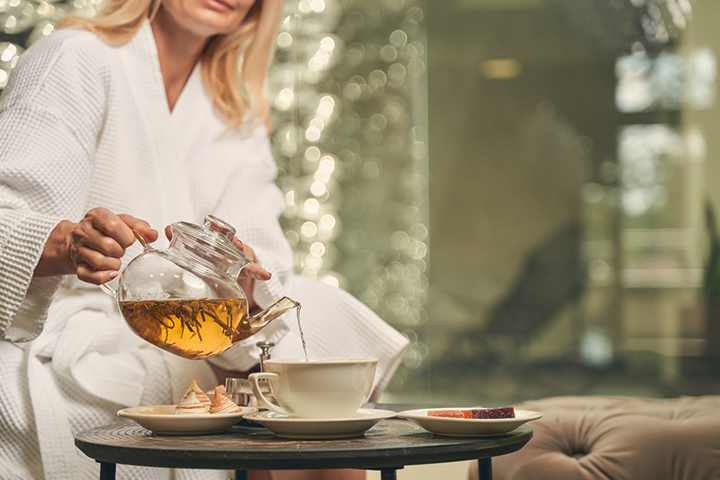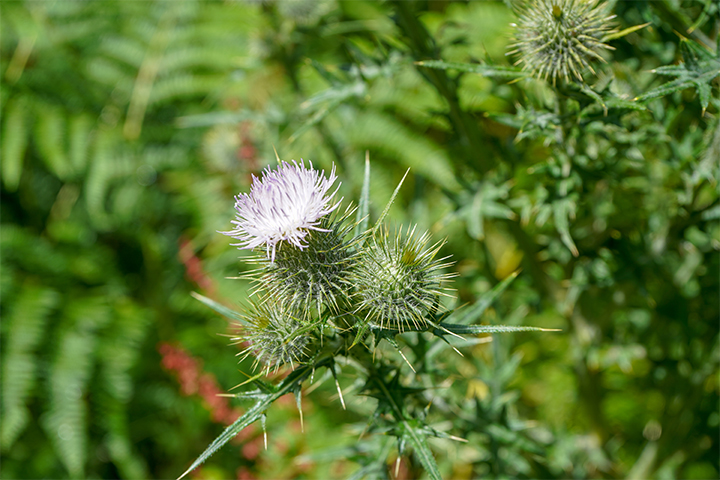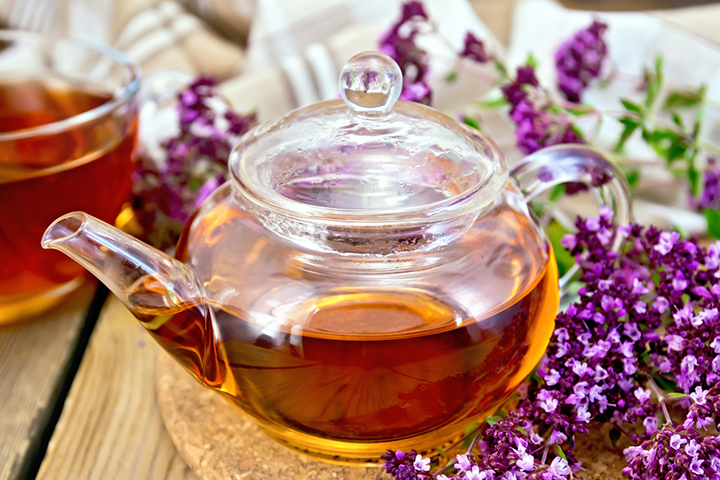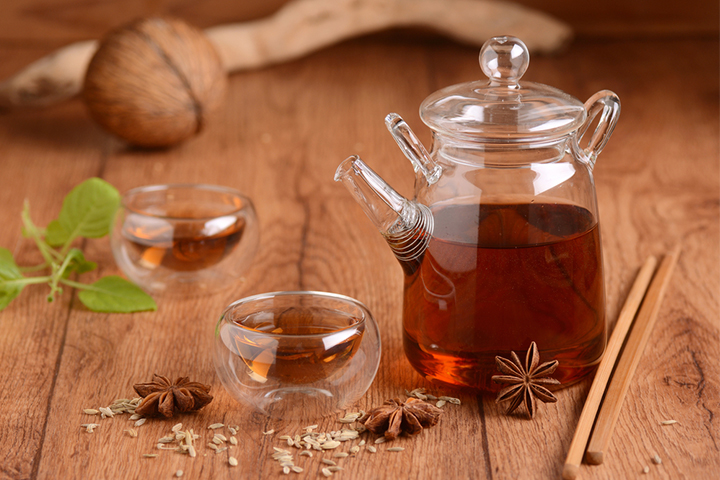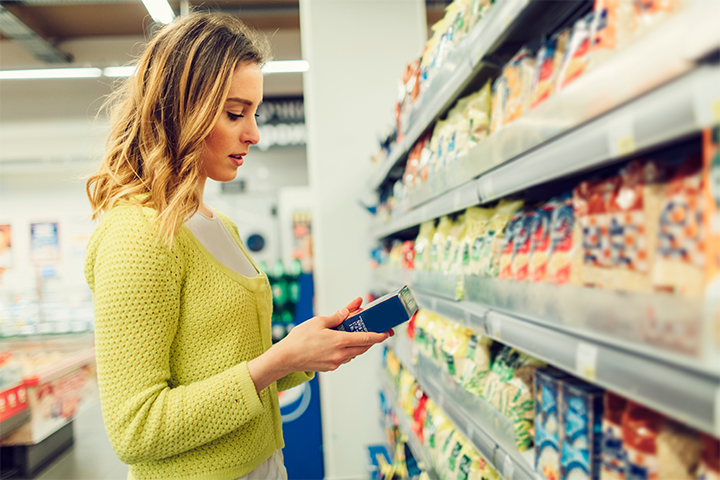A hot beverage could be just the thing you need to begin your day. Hence, after embracing motherhood, most new moms switch to healthy beverages such as herbal tea while breastfeeding. Owing to the wide range of health benefits of herbal tea and the many varieties that are available, you may want to include this healthy beverage as a part of your morning ritual.
However, not all the ingredients of herbal teas are suitable for everyone, and you may have to check the safety aspects before consuming them while breastfeeding. Want to know more about the important aspects of herbal teas and their role in regulating milk supply? Then read on.
Is It Safe To Drink Herbal Teas While Breastfeeding?
While you are breastfeeding, it is important to know what you eat or drink is safe for your baby or not. Your diet during lactation directly affects your health and your baby’s development. While most people believe that herbal tea helps purify the blood and increase the production of breast milk, medical research is yet to prove the exact health benefits it offers (1). The general opinion is that it is better to avoid drinking herbal tea while you are breastfeeding your little one. In case you do wish to have some, make sure you first speak to a licensed herbal practitioner, a lactation consultant or your medical practitioner.
Herbal Teas That May Increase Breast Milk Production
The following herbal teas may increase your breast milk production (2):
- Fenugreek Tea – avoid drinking it if you are a diabetic.
- Fennel Tea –works like your milk producing hormones and is an herbal way to increase breast milk. It is also helpful in relieving gas.
- Blessed Thistle Tea –it increases breast milk supply and also helps to fight postpartum depression.
- Alfalfa –it is loaded with vitamins and minerals and helps increase breast milk.
- Goat’s Rue –it increases the breast milk production and stimulates milk flow as well.
- Raspberry Leaf –in addition to increasing breast milk supply, it will also help your uterus recover after delivery.
- Stinging Nettle Leaf – it is loaded with vitamins and minerals that also aid in increasing breast milk supply (3).
- Milk Thistle – it may also help enhance breast milk production.
Sara Namusoga, a mum, shares her experience of when she struggled with breastfeeding her baby. She says, “I spent one and a half weeks without producing breast milk for my baby. Everyone I spoke to said it was a matter of eating certain foods that would stimulate breast milk production. Everyone was concerned that I was not able to produce breast milk for that long. And so, we called up a dietician who is a family friend. None of us could believe her recommendation: a herb called dill. ‘Make a tea and keep sipping until there’s no more flavor,’ she said (4). I had never heard of this herb but she sounded confident, so off to the market, we went to buy dill. I vividly remember starting the dill diet at 4.00 p.m. and by 9 p.m. I had my own milk river flowing effortlessly (ⅰ).’’
Herbal Teas That May Decrease Breast Milk Production
Just like any other food you consume, herbal tea too can enter your bloodstream and permeate your breast milk. As the Food and Drug Administration does not regulate herbal teas, there is no guarantee of their purity, safety or strength. Drinking herbal tea while you are still breastfeeding may even adversely affect the quantity and quality of your breast milk. Here are some herbal teas you should avoid while breastfeeding your baby as it may reduce your supply (2).
- Peppermint Tea
- Oregano Tea
Herbal Teas That May Harm The Baby And Mother
The intake of the following herbal tea may prove dangerous for the mother and baby:
- Ginseng tea (4)
- Star anise tea (2)
- Rhubarb root tea (5)
- Aloe Tea (5)
- Valerian root tea (6)
- Licorice root tea (7)
Things To Remember
If you do wish to go ahead and have herbal tea while you are still breastfeeding, make sure to take care of the following:
- Speak to your doctor before you try drinking any herbal tea.
- Check that the herbal tea is caffeine-free. Some herbal teas do contain caffeine and should be avoided while breastfeeding.
- Read the ingredients of the herbal tea to check for any potent food allergens.
- While many herbs and spices are generally safe to consume and provide nourishment while breastfeeding, it is necessary to be mindful of their potential effects on both you and your baby. Cumin, cardamom, turmeric, and ginger are among the spices that are typically considered safe to consume in moderation during this time. However, excessive consumption of spices such as nutmeg and cinnamon may not be recommended, as they may cause potential adverse effects in lactating mothers or breastfed infants (8) (9) (10) (11) (12) (13).
- Some studies say that consuming herbal tea in moderation may not cause any health problems (1). However, excessive consumption of herbal tea may have a negative impact on your health and your baby’s growth.
- It is important to seek medical advice before consuming teas that contain rosemary, thyme, dandelion roots, lavender, and passionflower during breastfeeding, as there is limited information available on their safety in this context.
Herbal teas while breastfeeding can either improve or reduce milk supply. Some teas, including fenugreek or raspberry leaf teas, are likely to increase breast milk supply and aid in postpartum recovery as natural remedies. However, peppermint, star anise, or aloe teas might harm the mother and the baby and affect breast milk production. Therefore, it is better to consult a lactation expert or medical practitioner before consuming any herbal tea and check its contents before having it.
Key Pointers
- Herbal teas lack medical backing for lactation benefits and may be avoided by lactating mothers.
- Fenugreek, fennel, blessed thistle, alfalfa, goat’s rue, raspberry leaf, and stinging nettle teas may boost breast milk production.
- Peppermint, parsley, sage, black walnut, and lemon balm teas may reduce milk supply.
- To limit exposure to substances, it is recommended to limit switching between different herbal teas.
- Before consuming herbal tea while breastfeeding, it is important to check with your doctor, avoid caffeine, and read ingredients for allergens.

